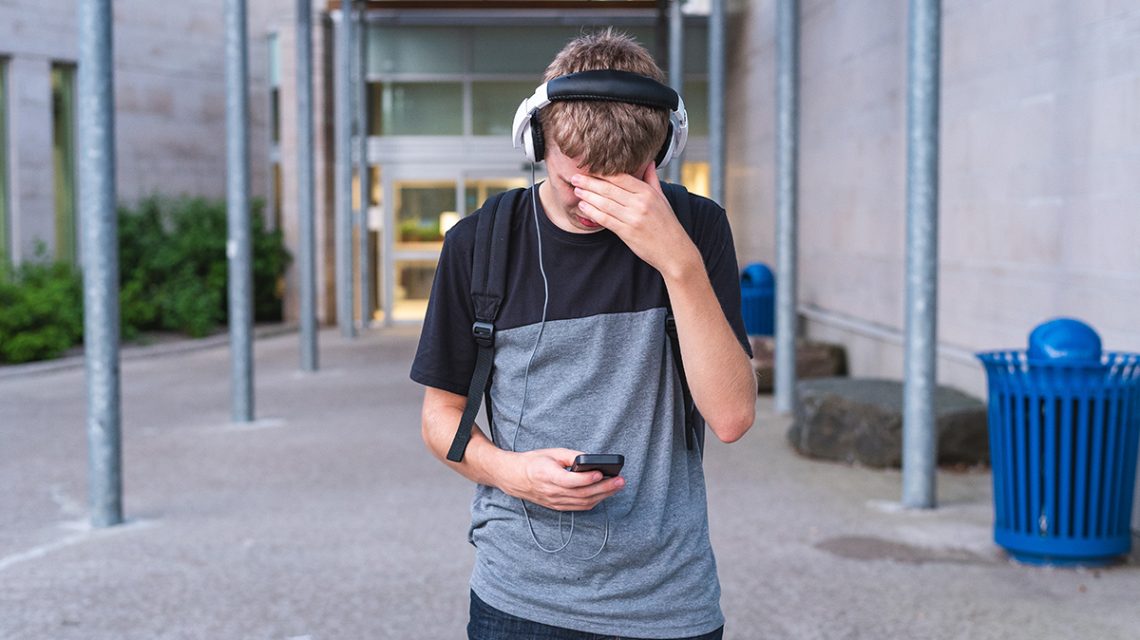Alongside the hormonal and emotional changes that accompany puberty, many teenagers develop social anxiety between the ages of 11 and 19. Social anxiety goes beyond mere shyness and introversion. It is a mental health disorder that can significantly interfere with someone’s quality of life. People with social phobia feel overwhelming stress in everyday situations where they must interact with others. For teenagers, this condition could prevent them from making friends, going to school or participating in extracurricular activities.
What Is Social Anxiety?
Social anxiety causes a persistent fear of being criticized, ridiculed or judged by others. Circumstances that might lead a teen’s anxiety to spike include:
- Giving a presentation for their class
- Competing in sports
- Performing at a recital, concert or talent show
- Getting together with friends
- Going to a school-sponsored event like homecoming or prom
- Eating in front of other people
- Ordering food from a restaurant server
- Talking one-on-one with their teacher, principal, coach or school counselor
- Going on a date
For a teen with social anxiety disorder, some of these situations might be more stressful than others. For example, your teen may be acutely anxious about initiating one-on-one conversations with strangers, but have no problems interacting in small groups with one or two close friends.
What Does Social Anxiety Feel Like?
Social anxiety can manifest differently for everyone, but in general, people with this mental health disorder may experience the following symptoms in stressful situations.
- A racing heart rate
- Shaking, sweating or blushing
- Nausea
- Panic attacks
- Difficulty establishing or maintaining eye contact
- An unwillingness to be around people they don’t know
- Worries that others are judging them
- A strong desire to avoid stressful situations
What Causes Social Anxiety?
Like other mental health issues, social anxiety may have a genetic component, but it remains unknown why some teenagers develop social phobias and others in their family don’t. Social anxiety disorder might also co-occur with conditions like depression, agoraphobia and substance abuse.
People with social anxiety disorder may tie themselves in knots about going to parties or speaking in public days or weeks before they happen. Sometimes, they end up skipping distressing events, preferring to be alone rather than face potential humiliation. Without treatment, social phobia can get worse. However, anxiety can make teens too embarrassed to ask for help. Here are some things you can do and say to help a teenager with social anxiety.
1. Give Him Space When Needed
The negativity caused by social anxiety is irrational, and your loved one likely is aware of that on some level. That’s why comments like “You need to snap out of it” are not helpful. Instead, allow him to feel whatever emotions he is experiencing in the moment. Acknowledge the distress, but remind him that these feelings will eventually pass.
2. Use Grounding Techniques
Grounding techniques can be tremendously helpful for some people with anxiety by providing a distraction from intrusive thoughts. If you sense a teen’s social anxiety symptoms might be spiraling into a panic attack, having a few of these techniques in your back pocket may help pull their attention back to the moment.
3. Be Patient
Overcoming a social anxiety disorder is possible, but it takes time to unlearn the negativity and maladaptive coping patterns that have developed over the years. Don’t expect your loved one to get better all at once.
Recovery for Teens and Families
At ARCH Academy, we provide high-quality care to young men struggling with substance use disorders in an environment that combines recovery, academics and adventure. To learn more about what we offer, please reach out today.




